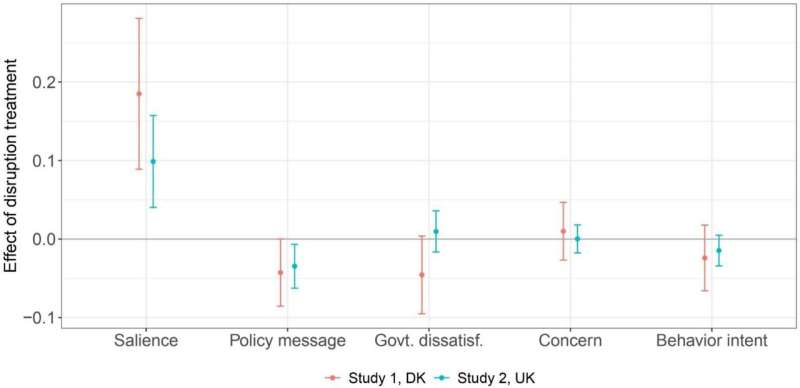
Climate activism has gained prominence through various forms of protest, notably disruptive actions that interrupt everyday life and cultural events. These protests, which include blocking construction sites or interrupting sporting events, have garnered substantial media attention in recent years. According to Clara Vandeweerdt, an assistant professor at the University of Copenhagen, disruptive protests effectively raise awareness about climate change, though they also present a paradoxical effect.
Recent research by Vandeweerdt, titled “The Activist’s Trade-off: Climate Disruption Buys Salience at a Cost,” published in the journal Political Behavior, reveals that while such protests elevate climate change on the political agenda, they can also provoke a backlash against the specific policy changes sought by activists. “The paradox is that a disruptive protest can indeed attract attention and elevate an issue on the political agenda. But we also observe a small backlash effect,” Vandeweerdt explained.
The backlash often occurs when the public reacts negatively to the specific demands of the protestors. For instance, Vandeweerdt cites an example from her research involving activists who blocked a road to protest the construction of new motorways in Denmark. Surprisingly, those who witnessed the protest were more inclined to support the very motorways the activists opposed.
Vandeweerdt’s study indicates that while disruptive protests do increase public recognition of climate change as a pressing issue, they can simultaneously diminish support for the specific policies the activists advocate. Overall concern for climate change remains stable, but attitudes toward particular policy measures can shift unfavorably.
Research Insights and Methodology
Vandeweerdt’s findings stem from two notable instances of disruptive climate protests: a motorway blockade in Denmark and an interruption of a televised snooker match in the United Kingdom. The research employed a classic experimental design, dividing participants into two groups. One group answered questions about political issues without prior exposure to news about the protests, while the other group reviewed a news article about the protests before responding.
The results showed that participants who read about the protests were 10% to 19% more likely to identify climate change as a significant societal issue. Yet, their support for the specific demands of the activists decreased.
Evaluating the Impact of Disruptive Protests
The critical question remains whether the benefits of using disruptive protests as a tool for climate activism outweigh the potential for backlash. Vandeweerdt emphasizes that activists must weigh the trade-off between gaining public attention and risking public opposition to their specific demands. “When activists decide whether to carry out a disruptive protest, a peaceful protest, or no protest at all, they need to consider this trade-off,” she noted.
While the awareness gained through disruptive protests is significant, Vandeweerdt suggests there may be alternative methods to raise awareness without inciting backlash. Non-disruptive forms of activism often fail to attract media coverage, even when large numbers participate in peaceful demonstrations.
She believes that understanding the effects of activism is essential for public authorities and governments. “They have to respond to protest actions and try to handle disruptive activism appropriately. It’s helpful if they understand what effect activism actually has on society,” Vandeweerdt stated.
As climate activism continues to evolve, the balance between disrupting the status quo and maintaining public support for climate initiatives will remain a critical consideration for activists and policymakers alike. The findings from Vandeweerdt’s research highlight the complexities involved in effectively communicating the urgency of climate change while navigating public sentiment.







